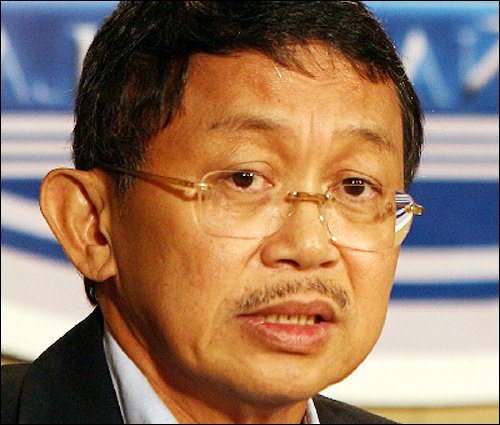State prosecutors appealed the dismissal of the graft case of former National Economic Development Authority (Neda) Director General Romulo Neri the allegedly overpriced national broadband network (NBN) deal with Chinese firm ZTE during the Arroyo administration.
Neri was cleared by the Sandiganbayan Fifth Division when the court granted his demurrer to evidence.
READ: Romulo Neri cleared in NBN-ZTE graft case
He was cleared of the allegations that from 2006 to 2007, he had lunch and played golf with ZTE officials and met with former Commission on Elections chairman Benjamin Abalos at the time the broadband deal was under review by Neda. Abalos was accused of lobbying for ZTE.
Neri was accused of having a financial interest in the project in violation of Section 3(h) of the Anti-Graft and Corrupt Practices Act when he met with ZTE officials, even though he as a member of the Cabinet was prohibited from having financial interests in any government contract.
In its motion for reconsideration, the Office of the Special Prosecutor said the evidence presented against Neri was sufficient to sustain his indictment for graft.
The prosecuting panel said Neri was aware he and other officials would earn commissions from the botched NBN deal if the contract would be awarded to Chinese firm ZTE.
The prosecutors said Neri even played golf with ZTE representatives and Abalos, alleged to be the one who lobbied for ZTE in the project.
The prosecutors said Neri’s participation was “apparent and specific,” especially after he reviewed the transaction and approved it despite knowing that there was a better offer from competing bidder Amsterdam Holdings Inc. (AHI).
The panel added that Neri’s absence in the China trip with ZTE indicates that he had “reservations” in the ZTE proposal, and that Neri “did not reject outright the idea of dealing with AHI because he knows the advantages of their offer.”
Neri also testified during the Senate Blue Ribbon committee hearings that he met with Abalos several times about Neri’s share in the contract.
Dante Madriaga, ZTE chief designer and consultant, also testified in the Senate that the contract cost was overpriced to $329 million from the original $130 million.
“Of the said amount ($130 million), $80 million is a ‘patong’ or an additional amount for commissions which will be divided in equal half between the Filipino group who will facilitate the approval for ZTE. Hence, the real cost of the project is only $50 million,” the prosecution said.
It added that the Neda investment Credit Committee, which was co-chaired by Neri, approved the overpriced contract price of $329.481 million.
“Since the prosecution was able to present sufficient evidence against the accused for violation of Section 3(h) of Republic Act 3019, it strongly submits that the case should not have been dismissed on demurrer,” the prosecutors said.
The principal accused, former president now Pampanga Rep. Gloria Macapagal-Arroyo, was also cleared from the charges of graft and breach of ethical conduct when the anti-graft court Fourth Division approved her demurrer to evidence. Also cleared were her co-accused Abalos and former first gentleman Mike Arroyo, who were accused of using their positions to earn from the project.
READ: Sandigan dismisses Arroyo’s NBN-ZTE case
Meanwhile, Abalos was acquitted in his separate graft case for having financial interest in the project.
READ: Ex-Comelec chair Abalos acquitted from graft over NBN-ZTE deal
Ironically, the star NBN-ZTE scandal witness Rodolfo “Jun” Lozada Jr., who accused Arroyo as the mastermind, was convicted of graft and sentenced to 10 years in jail in a separate case over an anomalous land deal when he was president and chief executive officer of the state-owned Philippine Forest Corp. (PFC) in 2007 and 2008.
READ: Jun Lozada convicted of graft, gets 6-10 years
The dismissal of the NBN case against Arroyo was the last of the corruption cases against the former president, whose plunder case involving the raid of P366 million state lottery funds at the Philippine Charity Sweepstakes Office was also dismissed by the Supreme Court for insufficiency of evidence.
